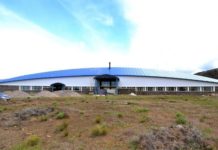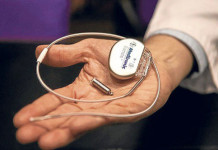It shows pictograms and uses sensors that interpret the context; it’s free; another is underway for people with complete paralysis.
CORDOBA: The search for a solution to a family problem led to the design of an application that facilitates communication of people with different types and degrees of disability. Three young people of this province created OTTAA Project that in less than a year, and still in stage of development, has about 1100 users.
The working group is composed of Hector Costa, 27, a graduate of Biomedical Engineering of the National University of Cordoba; Cristian Gutierrez, 25, who finished in Computer Engineering and Carlos Costa, 24, received a degree in Social Communication at the Blas Pascal University.
The Costa brothers began developing the app to help his grandmother communicate with others. The grandmother suffers from Alzheimer’s. Because of Hector’s family situation, he knew the instruments that were in the market, knew of the existence of pictographs (drawings) and its application for alternative communication of people with different disabilities.
The basic ARASAAC pictograms (Aragonese Portal of Augmentative and Alternative Communication born in 2007) are the ones that Alzheimer, aphasia, cerebral palsy and autism patients are using. They learn to communicate signaling images of actions or objects which they find in the booklet.
«We thought that as they already have a code of communication, we could improve it.» Carlos Costa told La Nacion Thus , they began using the sensors in mobile phones to understand the environment (hour, day, appointment calendar, weather). «The connection between the image and the context is the key,» he adds.
The application has a self-selecting menu which acts according to the environment, but the user can also look around it; and the advantage is that there are recommendations based on a minimization of options that makes it easier for patients to do what they need.
The team perfected the application working on two rehabilitation centers in Villa Carlos Paz (San Francisco de Asis and Mariette Lydis). They received the collaboration of medical, therapeutic assistants, psychologists and educational psychologists.
«The application provides the option of editing, so it can be adjusted to the user’s needs -describes Costa- an elderlly person can choose coffee or bank; a boy can choose sweet or toy. That means better and more accurate communication»
At a developing Stage
Ottaa Project is free and can be downloaded from its website. «We need to continue to expand its use so we want you to send us suggestions for further improvement,» Costa asks.
The developers just returned from five months in Dubai, where they participated in a program generation of healthcare companies and looked for investors to fund the work. The site also allows for those who want to make donations.
«We have no economic purpose; we always seek to generate a solutions for vulnerable groups. To reach those groups it is key that we get support from, for example, the Ministry of Health,» he says. They were contacted from abroad, but for now they are looking to finish the work in Argentina, if possible.
While completing the search for investors, they are working in another application for people completely paralyzed but conscious of the environment. When asked by La Nation if the app was like the machine that physicist Stephen Hawking uses, Costa explains that a key difference is that he already knew where his illness evolved and the computer «had been trained before.»
«The algorithm of his computer learned from him and a development like that costs $ 500000 or more. What we propose is that the machine makes an interpretation of the environment, that that is the main power of the algorithm and that it will also understand the user ; we seek a development that will not be for just a few patients. »
Source: http://www.lanacion.com.ar/1909133-desarrollan-en-cordoba-una-aplicacion-para-que-se-comuniquen-discapacitados









